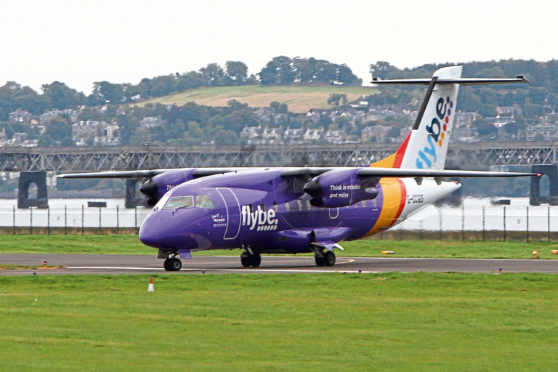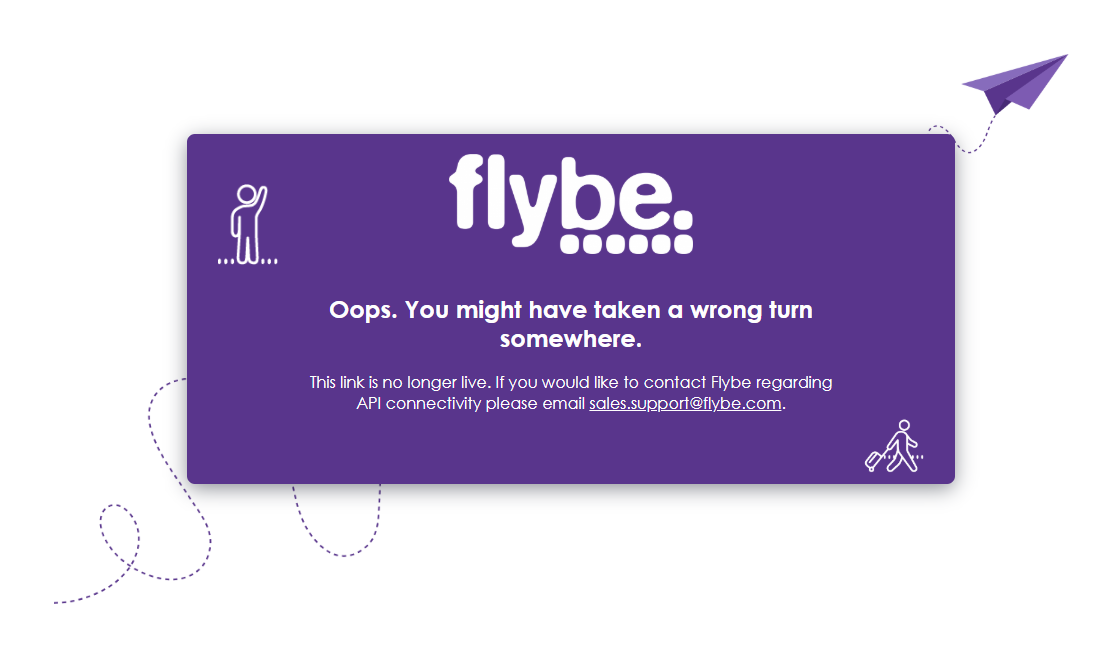Flybe is reportedly “on the brink of collapse” this evening after failing to secure a £100 million loan.
The struggling airline, which employs 2,000 people, has been hit by a slump in bookings since the outbreak of coronavirus.
It was saved from going under earlier this year but has been unable to obtain the necessary finance from the UK Government.
People briefed on the regional carrier’s situation told the Financial Times that the company only has enough resources to survive “until the end of this month”.
Flybe serves around 170 destinations and has a major presence in the north and north-east with services between Aberdeen, Inverness, Kirkwall, Sumburgh and Wick John O’Groats.
Last night there were reports of disruption to services at Glasgow Airport, with staff allegedly told to stop refuelling aircraft.
But the airline later clarified that this was the result of an error.
A spokeswoman said: “Following a mis-communication regarding re-fuelling this evening two flights were delayed and, due to the crew now being out of hours, have been cancelled. “Normal operations have now resumed.”
Flybe’s website appeared to have been taken offline shortly before 11pm.
A series of issues has affected the airline’s finances, including rising fuel costs, falling demand, competition from road, rail and other airlines, plus a weakening of the pound.
As part of a January rescue deal, it agreed an arrangement to defer tax payments of “less than £10m” with HM Revenue and Customs.
Ministers also agreed to hold a review into Air Passenger Duty (APD).
The structure of APD – which adds £26 to the price of most return domestic flights such as those operated by Flybe – may alter in next week’s Budget.
It was bought by a consortium comprising Virgin Atlantic, Stobart Group and Cyrus Capital in February, but has continued to make losses.
Spokespeople for Flybe and the Department for Transport both declined to comment on “speculation” regarding its financial situation.
Mike Clancy, the general secretary of trade union Prospect, said: “This will be a devastating blow for our members working for Flybe.
“The airline provides important connections to and from parts of the UK where other viable options often don’t exist.
“A number of regional airports are also highly reliant on Flybe for most or all of their scheduled services.
“Prospect will do everything we can to support our members but the the truth is the government has badly let them down.
“The failure to provide the loan that is required as part of a package of rescue measures means the government has failed it its commitment to every part of the UK.”
Nadine Houghton, national officer of the GMB union, said: “These unfolding developments are a tragedy not only for Flybe’s loyal workforce, but a domino effect now puts 1,400 jobs in the wider supply chain at immediate risk and threatens the future of vital regional airports.
“The last thing regions crying out for investment need is to see infrastructure that maintains good jobs ripped away.”
The general secretary of the British Airline Pilots Association, Brian Strutton, said: “The government made unequivocal promises to keep Flybe flying and loyal staff and passengers rightly expect this government to keep its word.”
Andy McDonald MP, Labour Shadow Transport Secretary, said the potential collapse will cause “real anxiety” for many.
“Flybe has provided critical connectivity for many locations throughout the country especially where there is currently no realistic transport alternative other than flying,” he said.
“The government has to answer how those vital links will be maintained following Flybe’s collapse.
“Communities will be concerned about what this will mean for their local economies and the Secretary of State has to come up with answers to these questions as a matter of urgency.”
What happens next?
Flybe carries around eight million passengers a year between 71 airports across the UK and Europe.
If it collapses, it could potentially leave thousands of people stranded with no way of returning home, and 2,000 staff members out of work.
When previous firms such as Monarch Airlines and Thomas Cook collapsed, the Civil Aviation Authority was ordered to launch a major repatriation operation to fly them home, costing tens of millions of pounds.
It is not yet clear whether the UK Government would order a similar act for Flybe travellers.
Questions have been asked as to whether or not customers will be eligible for a refund.
Some travel insurance firms will cover cancelled flights if they are the result of an airline collapse, but not all policies provide this coverage.
Flights bought directly from airlines such as Flybe are generally not covered by Atol, a scheme which protects holidaymakers when travel firms collapse.
This usually applies during package bookings, such as flights and accommodation, and allows people to finish their holidays before heading home.
Under the scheme, customers who have not yet travelled will be given a refund or replacement holiday.

